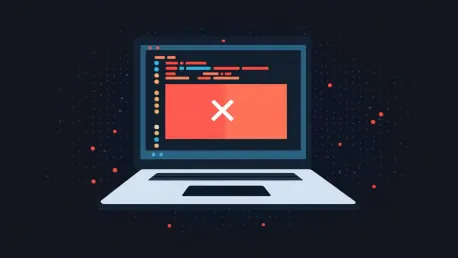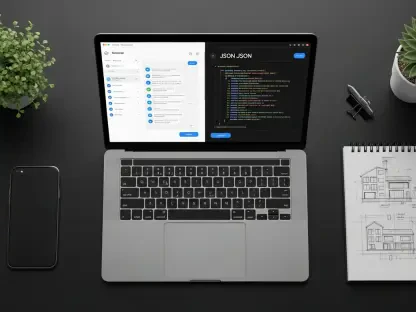A critical security vulnerability identified as CVE-2024-13918 has been discovered in the Laravel framework, allowing attackers to execute arbitrary JavaScript code on websites running affected versions of this popular PHP framework. The flaw has been found by security researchers Philipp Adelsberger and Fabian Funder of SBA Research, focusing on the debug-mode error page rendering of the framework. This vulnerability exposes applications to reflected cross-site scripting (XSS) attacks when they are running in development configurations, which is typically characterized by the APP_DEBUG=true setting in the .env configuration file. The implications of this vulnerability are severe, as attackers can exploit it to execute malicious JavaScript, potentially leading to unauthorized actions, theft of session cookies, or even the deployment of malware.
Understanding the Vulnerability
In affected versions ranging from Laravel 11.9.0 through 11.35.1, the framework’s error page improperly encodes request parameters when displaying diagnostic information for HTTP 500 errors. The vulnerability carries a CVSS v3.1 score of 8.0 (High), underscoring the immediate need for developers to take action to mitigate potential risks. The issue is rooted in Laravel’s error-handling system, where debug mode allows detailed error information to be displayed for developers. However, this debug error page uses Laravel’s Blade template engine with unescaped output directives ({!! !!}) instead of the secure {{ }} syntax that automatically applies HTML entity encoding.
This vulnerable configuration bypasses Laravel’s typical XSS protections, allowing the injection of raw HTML/JavaScript content through request parameters. Attackers can exploit this by crafting malicious URLs containing JavaScript payloads within query parameters or POST data. These payloads, when executed, can perform a variety of unauthorized actions on behalf of the attacker. This configuration is particularly dangerous because, while debug mode is meant for development phases, it is sometimes inadvertently left enabled in production, magnifying the potential for exploitation.
Proof of Concept and Exploitation
To illustrate the attack vector, a functional proof-of-concept has been provided. First, Laravel must be configured with APP_DEBUG=true in the .env file. Next, a test route is created that triggers an error, such as a division-by-zero operation. Attackers can then craft a URL containing the malicious payload that, when accessed, triggers the error and causes Laravel to render the debug error page with the unescaped payload parameter. This results in the browser executing the injected script, which can expose user sessions, steal authentication tokens, or redirect users to phishing sites.
Attack scenarios facilitated by this vulnerability include stealing session cookies and authentication tokens through document.cookie access, redirecting users to phishing sites via window.location manipulation, and performing actions on behalf of authenticated users through CSRF token theft. Additionally, attackers can deploy cryptocurrency miners or other malware by loading external scripts. The successful exploitation of this vulnerability primarily relies on social engineering tactics to trick victims into clicking specially crafted links, while widespread scanning for vulnerable instances further elevates the risk.
Mitigations and Preventative Measures
In affected versions of Laravel, from 11.9.0 through 11.35.1, the framework’s error page improperly encodes request parameters when showing diagnostic information for HTTP 500 errors. This vulnerability has a CVSS v3.1 score of 8.0 (High), highlighting the urgent need for developers to address the issue. The problem stems from Laravel’s error-handling mechanism, where debug mode reveals detailed error information to developers. Unfortunately, this debug error page leverages Laravel’s Blade template engine using unescaped output directives ({!! !!}) instead of the secure {{ }} syntax, which automatically applies HTML entity encoding.
This flawed setup circumvents Laravel’s usual XSS protections, permitting the injection of raw HTML/JavaScript content via request parameters. Attackers can exploit this vulnerability by crafting malicious URLs with JavaScript payloads in query parameters or POST data. When executed, these payloads can conduct various unauthorized actions. This risk is particularly concerning because debug mode, intended for development, is sometimes accidentally left active in production, increasing the possibility of exploitation.









